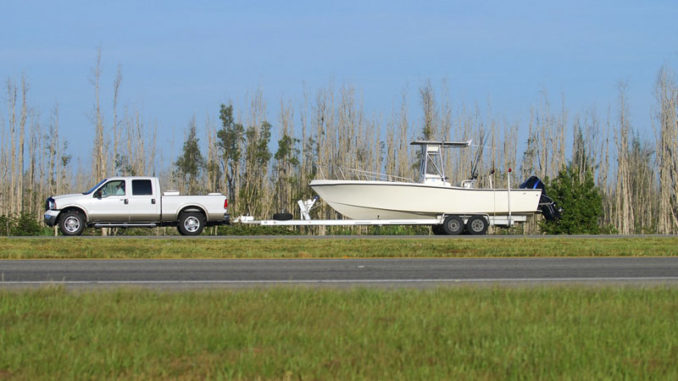
Trailer, boat maintenance is on spring to-do list
April is a favorite month for many anglers, and while a lot of folks get on the water, it’s also a common month to have a less-than-pleasant fishing experience. The main reason is often a lack of proper boat and trailer maintenance.
John Long, who runs East Columbia Sports Shop and fishes throughout the year out of his part-time home on Lady’s Island, said he sees more broken-down boats and trailers in April than any other month.
“A really common sight this month when I’m traveling to the coast is boats pulled over on the side of the road,” said Long (803-776-8320). “More often than not, the trailer tires are flat or the wheel bearings are burned up. That’s just so common this time of year. And while it’s understandable, it’s also something that is easy to prevent.”
The reason it’s common, according to Long, is because many anglers don’t fish throughout the winter. So their boats sit idle. Once warm weather hits, those anglers are eager to get on the water. so they hook up the trailer and go without taking a few easy steps that will ensure they make it safely.
These easy steps will save lots of hassle
“Greasing the wheel hubs on your trailer takes just a few minutes. But it can mean the difference between getting to the water on time and spending your whole fishing day trying to get your boat and trailer back on the road. Burning up your wheel bearings can be a time-killer. And it will be a lot more costly than the time it takes to grease your hubs,” Long said.
Anglers can avoid flat tires even easier, in Long’s opinion.
“Most tires lose air pressure throughout the winter,” he said. “Tires that are under-inflated can easily get too hot at towing speeds. And that causes blowouts in a hurry. You need to check the tire pressure with a good gauge before you hit the road. You’re not doing yourself any favors by just looking at the tires and figuring they have enough air. It’s very difficult, especially on trailer tires, to tell if they have enough air just by looking at them.”
Long said another mistake many boaters make is putting the wrong tires on their trailer.
All tires are not created equal
“Trailer tires are built differently than auto tires. They have stiffer sidewalls and are built to handle loads differently than truck tires are. A lot of people think they can replace their trailer tires with regular auto tires. But that’s a mistake and will lead to more flats,” he said.
It’s also common for boat trailers to have inoperative brake lights and turn signals this time of year. Long said an easy fix is usually in order.
“Replacing your bulbs is cheap and usually fixes most problems. Sometimes, the wiring just corrodes right where it connects to the lights. So stripping a little off and reconnecting can fix that,” he said.
Long said he also typically rescues boaters on the water more often in April than any other month.
“I’ve towed a number of people back to the boat landing in April because something went wrong with their outboards,” he said. “Again, that’s mainly because their boat sat up all winter, and they didn’t do a little routine maintenance before winter or once they decided to hit the water when this month rolls around.”
Boaters love water, but not in their fuel lines
Water in fuel lines is one of the biggest problems that haunts boaters in the spring.
“Water in the gas tank is probably the most common problem with outboards that don’t get run all year,” Long said. “Folks leave their gas from last summer in the tank, and condensation builds up in the tanks throughout the rest of the year. So water is a problem. It usually makes it tough to crank, but once the motor is cranked, it will run okay for a bit, then stall out. It leaves a lot of boaters stranded early in the spring.
“Other problems include insects like dirt daubers building nests inside any crevice they can find under an outboard’s cowl and throughout the boat. This clogs air intakes, exhausts, and causes electrical shorts. This kind of stuff usually isn’t a problem once the summer is here. During summer, people use their boats often, so the boat’s not sitting idle enough for these type things to happen.”




Be the first to comment